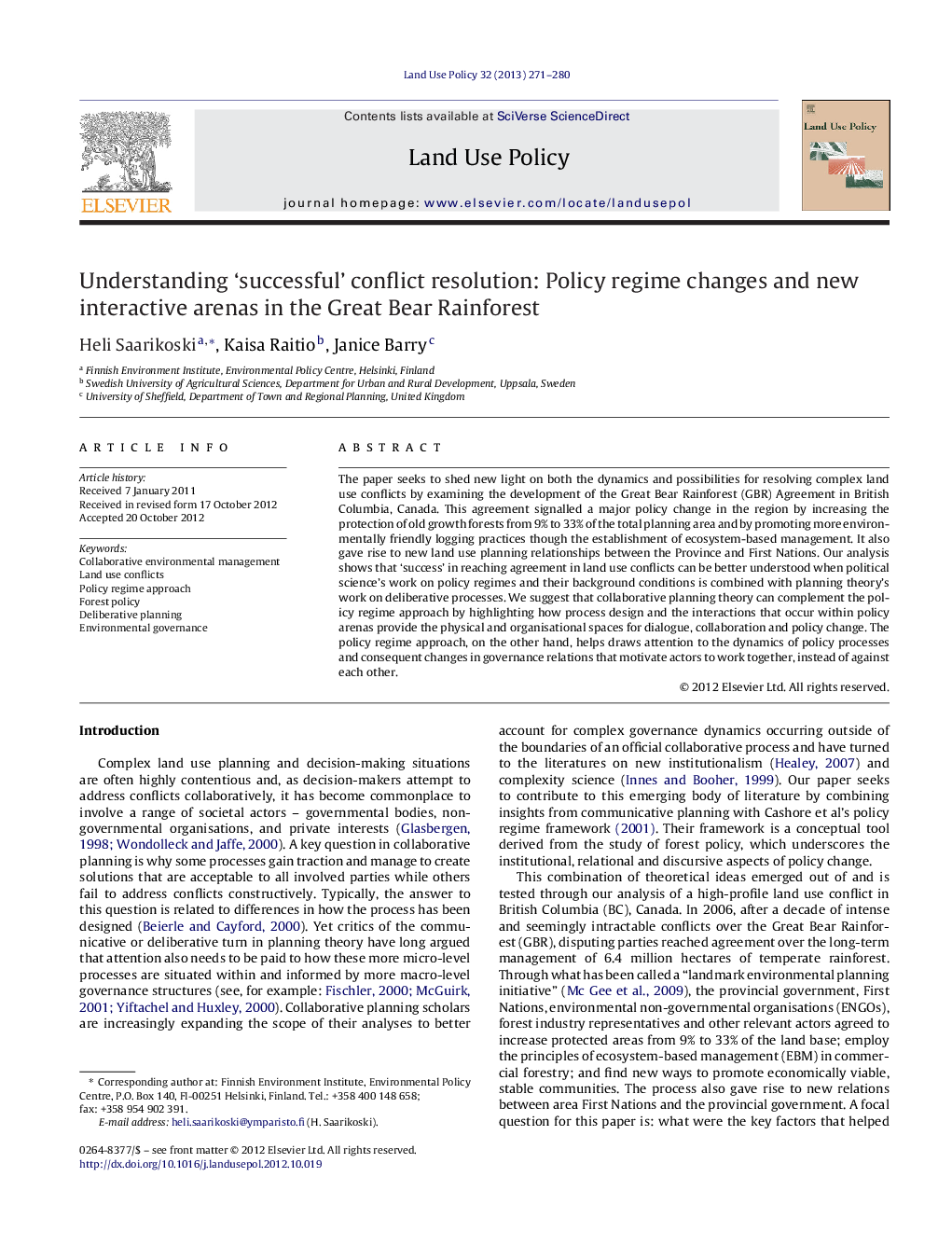| Article ID | Journal | Published Year | Pages | File Type |
|---|---|---|---|---|
| 93263 | Land Use Policy | 2013 | 10 Pages |
The paper seeks to shed new light on both the dynamics and possibilities for resolving complex land use conflicts by examining the development of the Great Bear Rainforest (GBR) Agreement in British Columbia, Canada. This agreement signalled a major policy change in the region by increasing the protection of old growth forests from 9% to 33% of the total planning area and by promoting more environmentally friendly logging practices though the establishment of ecosystem-based management. It also gave rise to new land use planning relationships between the Province and First Nations. Our analysis shows that ‘success’ in reaching agreement in land use conflicts can be better understood when political science's work on policy regimes and their background conditions is combined with planning theory's work on deliberative processes. We suggest that collaborative planning theory can complement the policy regime approach by highlighting how process design and the interactions that occur within policy arenas provide the physical and organisational spaces for dialogue, collaboration and policy change. The policy regime approach, on the other hand, helps draws attention to the dynamics of policy processes and consequent changes in governance relations that motivate actors to work together, instead of against each other.
► We analyse factors that contributed to successful settlement of conflict over Great Bear Rainforest in Canada. ► Power interdependency, discourses of sustainability and aboriginal rights and effective negotiations were key factors. ► Policy regime approach draws attention to the dynamics of policy processes and consequent changes in governance relations. ► Deliberative theory highlights the process design and communicative interactions that occur within policy arenas. ► Combining these two approaches is helpful in understanding success in reaching agreement in land use conflicts.
